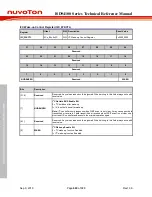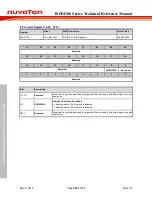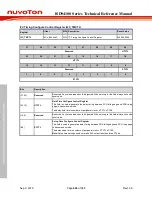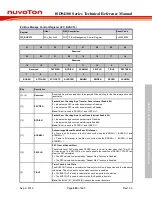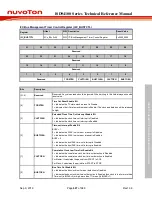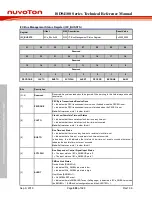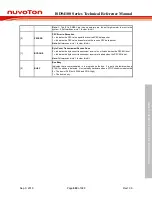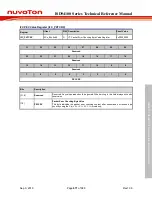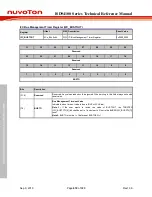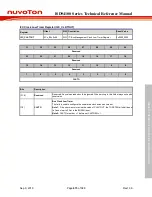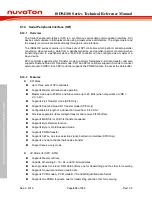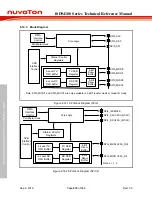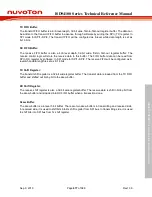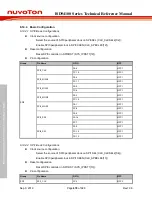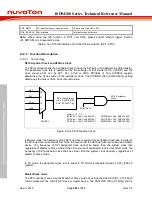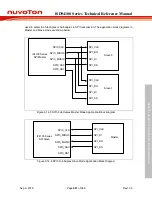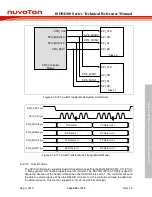
ISD94100 Series Technical Reference Manual
Sep 9, 2019
Page
674
of 928
Rev1.09
IS
D
9
410
0
S
ER
IE
S
T
E
C
HN
ICA
L
RE
F
E
RE
NCE
M
AN
U
AL
6.14 Serial Peripheral Interface (SPI)
6.14.1 Overview
The Serial Peripheral Interface (SPI) is a synchronous serial data communication interface. SPI
devices communicate in full duplex mode using a master-slave architecture. The single master and
the slave(s) communicate bi-directionally through a 4-wire interface.
The ISD94100 series contains up to three sets of SPI controllers which perform serial-to-parallel
conversion when receiving data from a peripheral device, and parallel-to-serial conversion when
transmitting data to a peripheral device. Each SPI controller can be configured as a master or a
slave device.
SPI0 controller supports 2-bit Transfer mode to perform full-duplex 2-bit data transfer and also
supports Dual and Quad I/O Transfer mode. SPI1 and SPI2 controllers support I
2
S mode to connect
external audio CODEC. Each SPI controller supports the PDMA function to access the data buffer.
6.14.2 Features
SPI Mode
Up to three sets of SPI controllers
Supports Master or Slave mode operation
Master mode up to 25 MHz and Slave mode up to 25 MHz (when chip works at VDD =
2.7~3.6V)
Supports 2-bit Transfer mode (SPI0 Only)
Supports Dual and Quad I/O Transfer mode (SPI0 Only)
Configurable bit length of a transaction word from 8 to 32-bit
Provides separate 4-/8-level depth transmit and receive FIFO buffers
Supports MSB first or LSB first transfer sequence
Supports Byte Reorder function
Supports Byte or Word Suspend mode
Supports PDMA transfer
Supports 3-Wire, no slave selection signal, bi-direction interface (SPI0 Only)
Supports one data channel half-duplex transfer
Support receive-only mode
I
2
S Mode (for SPI1~SPI2)
Supports Master or Slave
Capable of handling 8-, 16-, 24- and 32-bit word sizes
Each provides two 4-level FIFO data buffers, one for transmitting and the other for receiving
Supports monaural and stereo audio data
Supports PCM mode A, PCM mode B, I
2
S and MSB justified data format
Supports two PDMA requests, one for transmitting and the other for receiving

